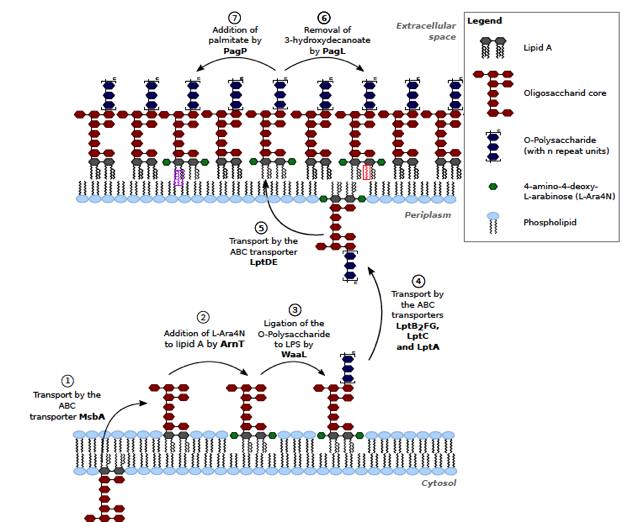News
24.09.2019
Antibiotic resistance in Pseudomonas aeruginosa
In his bachelor thesis Eike Pertuch investigated relevant resistance mechanisms.
Pseudomonas aeruginosa is a Gram-negative, opportunistic pathogen. As such, it is responsible for infections in hospitalized patients with local or systemic immunodeficiency. A notable problem of infections with P. aeruginosa is the high rate of antibiotic resistance. A fundamental understanding of these resistance mechanisms is required to produce new, effective antibiotics against this pathogen. In his bachelor thesis, Eike Pertuch investigated modifications of lipopolysaccharides (LPS), which are components of the outer bacterial membrane and whose modifications can reduce the efficacy of antibiotics. He extended an existing genome-scale model of P. aeruginosa to include the different LPS modifications and then analyzed the altered metabolism for different modifications. His extensions and initial analyses expanded and deepened the understanding of the resistance mechanisms in P. aeruginosa and can pave the way for new, innovative treatment strategies in further analyses.

